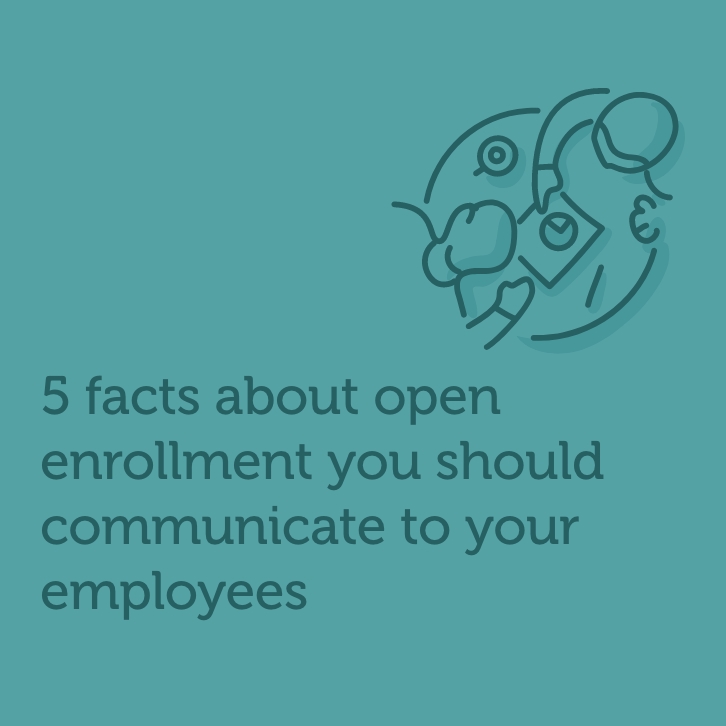So you just sent out a company-wide email announcing the start of the open enrollment period. Shortly after, your email is bombarded with questions from confused employees. What’s open enrollment? How do we process this? Are my children eligible to be dependents? These are some of the many questions you’ll usually receive during this time.
In this blog post, we’ll discuss five facts about open enrollment that you should communicate to your employees to make the process easier and smoother.
Fact #1: When Can They Make Changes to Their Coverage
One of the first details you want to share with your employees is when they can make changes to their coverage. Employees can sign up for coverage, drop it, or make changes to previously selected plans during this time.
Open enrollment periods differ per plan and state. In most states, their open enrollment period for 2023 started last November 1 and will continue until January 15, 2023. Providing your employees with this information during your announcement will help them make timely changes to their benefits.
Additionally, you can qualify for a Special Enrollment Period (SEP) outside the regular open enrollment period. This happens when an employee experiences a significant life event, such as getting married, having a baby, or quitting their last job.
Fact #2: It’s Okay To Not Make Changes to Your Coverage
Special company announcements, such as open enrollment, often put unnecessary stress or pressure on employees unfamiliar with the open enrollment process. Usually, this leads them to make changes they don’t need or want.
To avoid such situations, remind your employees that it’s perfectly okay to not make any changes during open enrollment and remain with the same plan they had previously selected. This will help them keep their coverage without worrying about making changes that might affect their budget or coverage.
Fact #3: CDHPs Usually Offer Less Than Employer-funded Plans
CDHPs, or consumer-driven health plans, are popular in the open enrollment process because of their lower premium offers. CDHPs include programs like HSAs, FSAs, and HRAs funded by employees and employers.
However, compared to employer-funded benefits like PPOs or HDHPs, CHPDs usually offer less coverage for higher out-of-pocket costs or deductibles. That’s why it’s essential to remind your employees that CDHPs are usually a short-term solution for their benefit needs and should be reviewed after some time.
Fact #4: Your Family Size and Income Determine Your Eligibility for Tax Credits
Under the Affordable Care Act, employees may qualify for tax credits if their family size and income fit specific criteria. This helps offset the cost of premiums for health insurance plans purchased through a public health insurance marketplace.
Generally, employees could qualify for a tax credit if their family size and income don’t exceed 400% of the Federal Poverty Level. You may check this source to determine the current Federal Poverty Level for your family size and income.
Fact #5: All Health Plans Must Cover 10 Essential Employee Benefits
No matter what health plan your employees select during the open enrollment, they will receive ten necessary employee benefits under the Affordable Care Act. These include the following:
- Dental and vision care
- Emergency care
- Diagnostics
- Inpatient care
- Mental health and substance abuse services
- Outpatient care
- Pregnancy and newborn
- Prescriptions
- Preventative care
- Rehabilitation care
Make Open Enrollment Easier
Open enrollment is an excellent opportunity for your employees to make the most out of their benefits and ensure they have the coverage they need. Remember to provide a comprehensive announcement that covers essential information like the ones we mentioned above.
You can make their lives significantly easier by using an automated benefits enrollment platform like GoWellBenefits. Platforms like these help employers and companies save time, money, and resources from benefits management.

